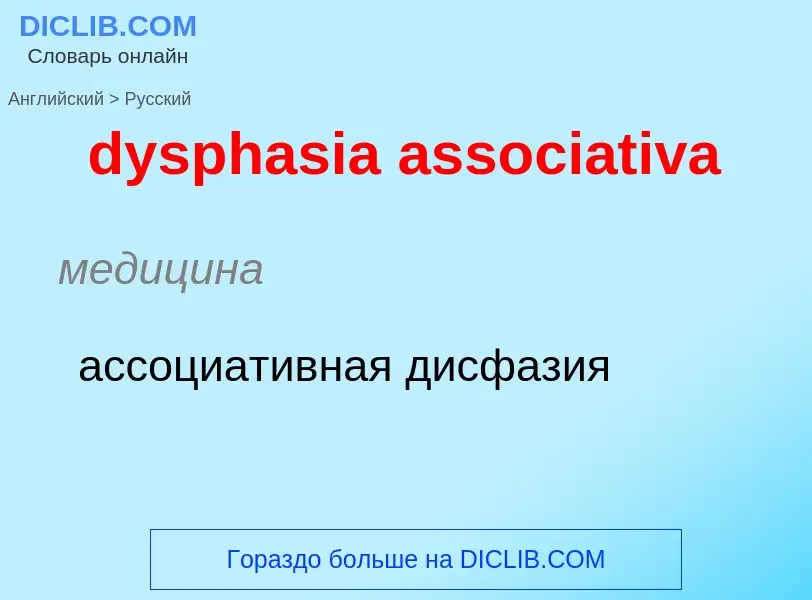Translation and analysis of words by artificial intelligence
On this page you can get a detailed analysis of a word or phrase, produced by the best artificial intelligence technology to date:
- how the word is used
- frequency of use
- it is used more often in oral or written speech
- word translation options
- usage examples (several phrases with translation)
- etymology
dysphasia associativa - translation to russian
медицина
ассоциативная дисфазия
медицина
сенсорная афазия
Definition
Wikipedia

Expressive aphasia, also known as Broca's aphasia, is a type of aphasia characterized by partial loss of the ability to produce language (spoken, manual, or written), although comprehension generally remains intact. A person with expressive aphasia will exhibit effortful speech. Speech generally includes important content words but leaves out function words that have more grammatical significance than physical meaning, such as prepositions and articles. This is known as "telegraphic speech". The person's intended message may still be understood, but their sentence will not be grammatically correct. In very severe forms of expressive aphasia, a person may only speak using single word utterances. Typically, comprehension is mildly to moderately impaired in expressive aphasia due to difficulty understanding complex grammar.
It is caused by acquired damage to the anterior regions of the brain, such as Broca's area. It is one subset of a larger family of disorders known collectively as aphasia. Expressive aphasia contrasts with receptive aphasia, in which patients are able to speak in grammatical sentences that lack semantic significance and generally also have trouble with comprehension. Expressive aphasia differs from dysarthria, which is typified by a patient's inability to properly move the muscles of the tongue and mouth to produce speech. Expressive aphasia also differs from apraxia of speech, which is a motor disorder characterized by an inability to create and sequence motor plans for speech.


